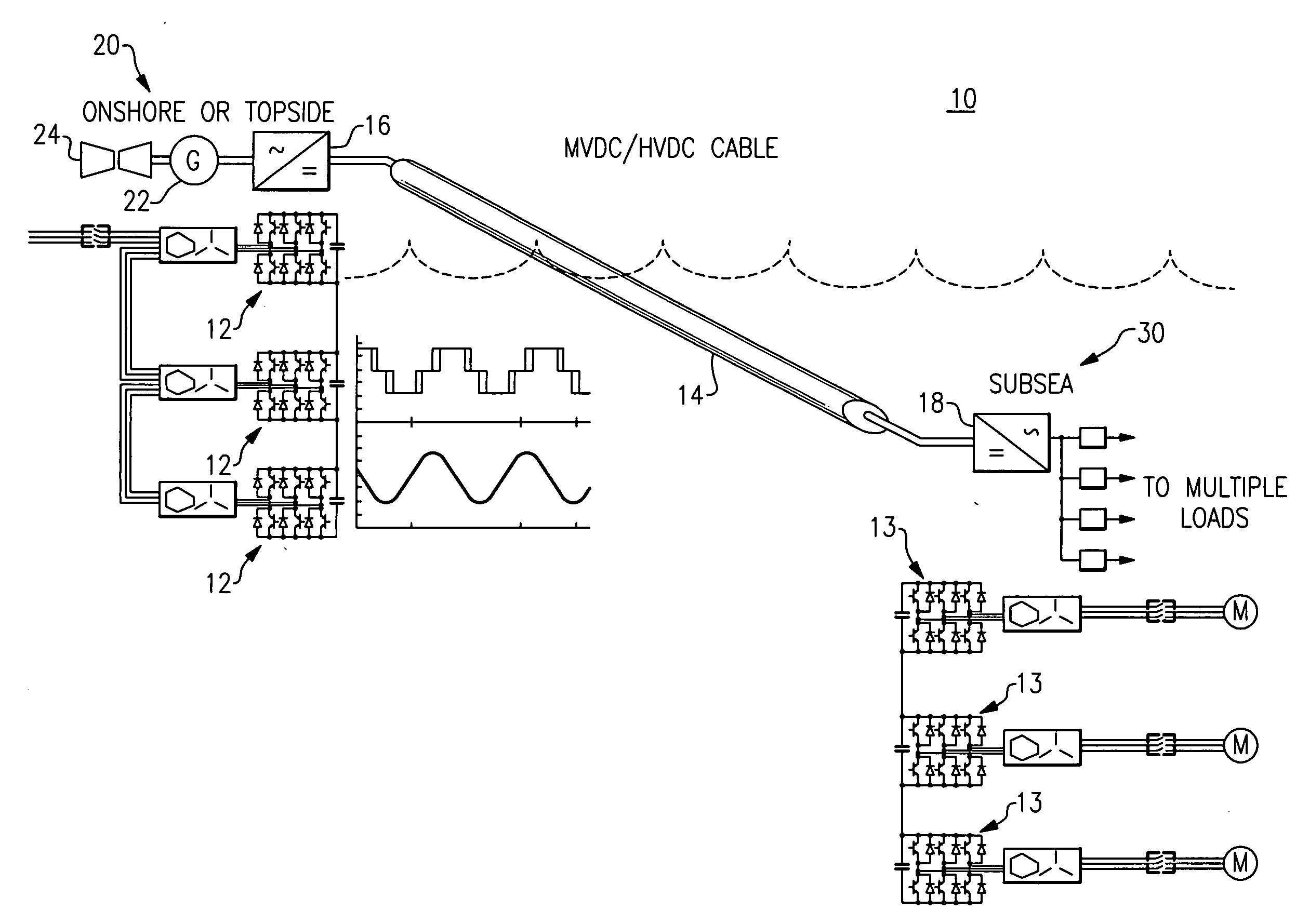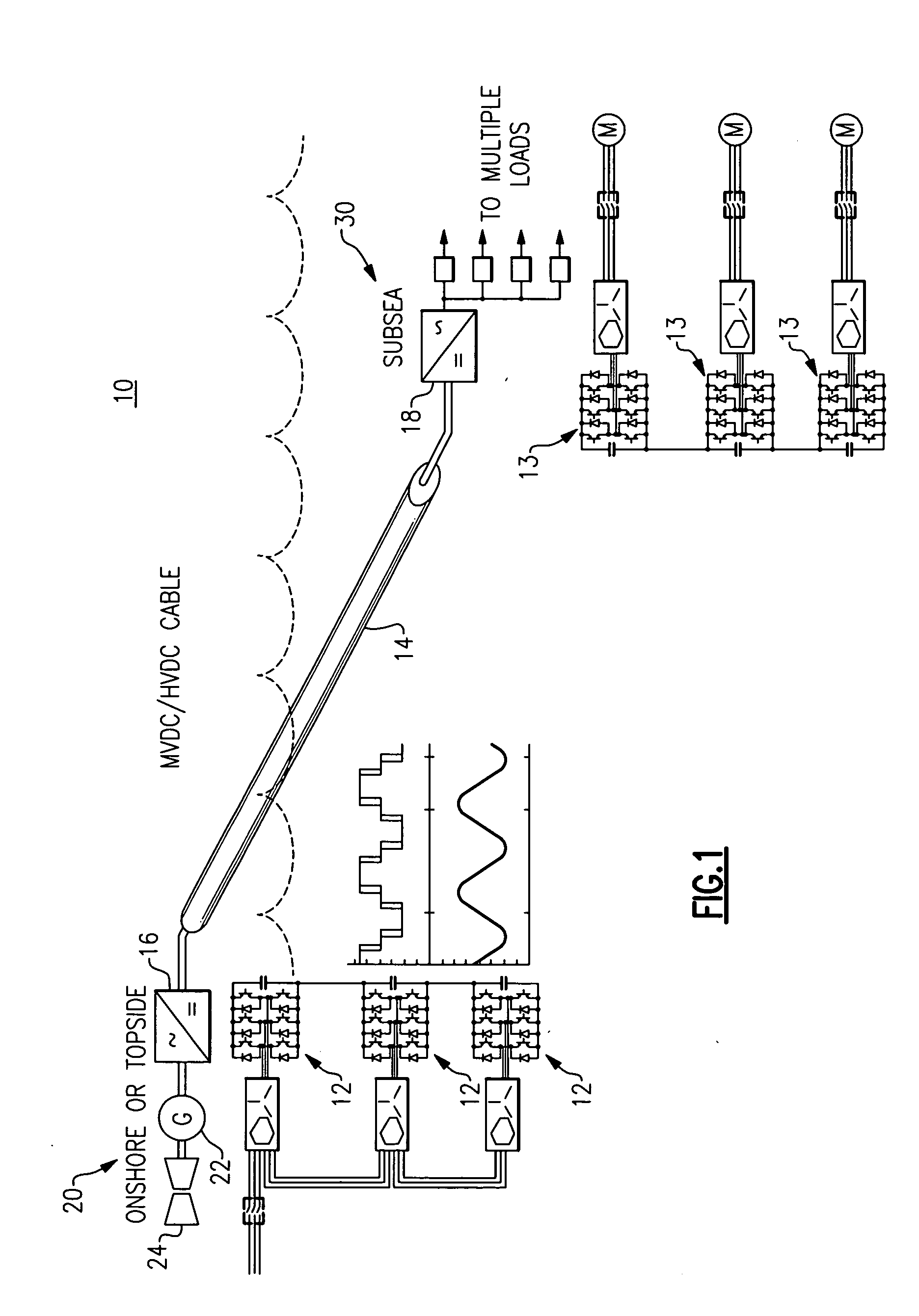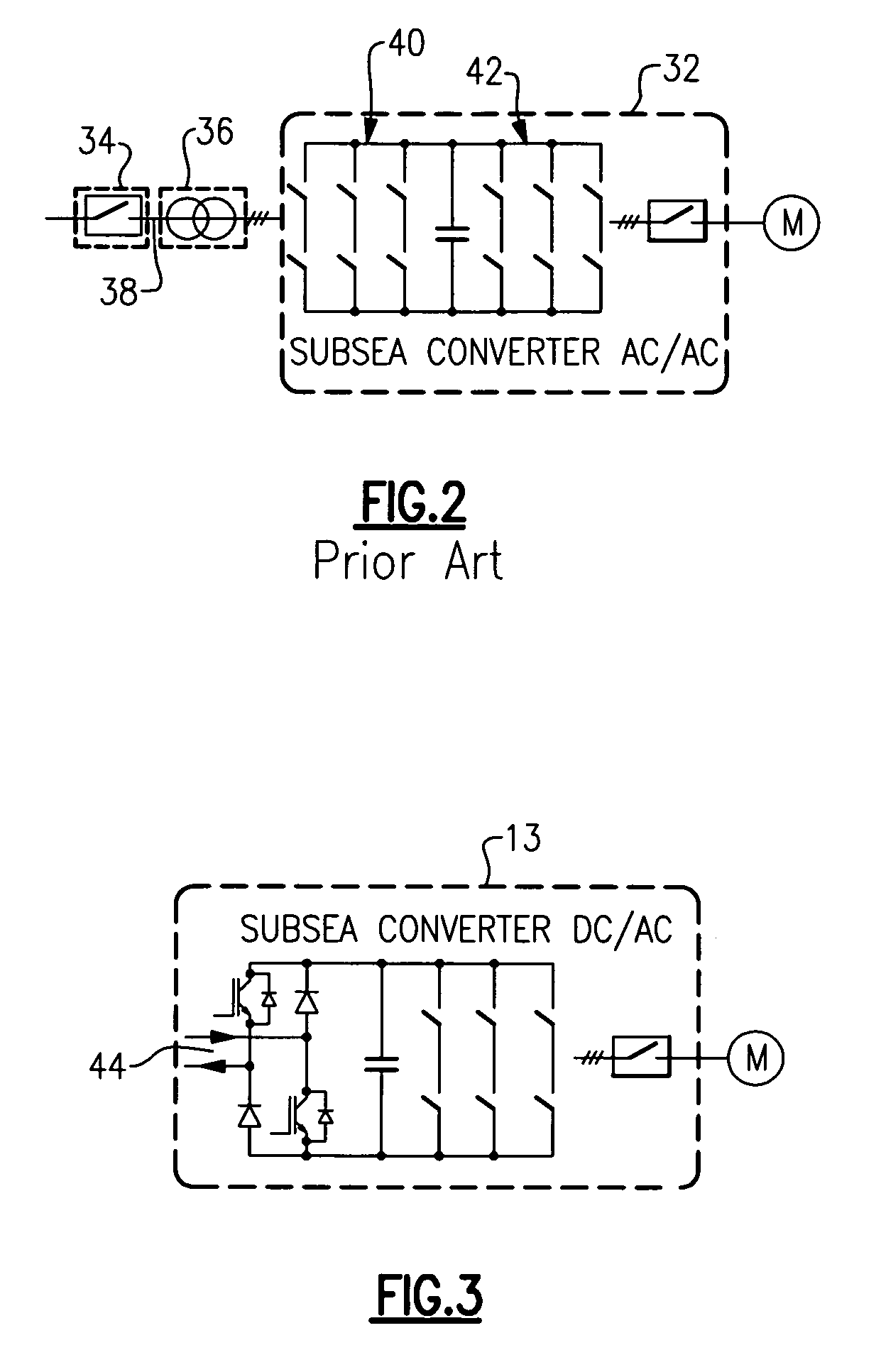Modular stacked subsea power system architectures
a power system and module technology, applied in the field of modular stacked subsea power system architectures, can solve the problems of reducing material and installation costs, affecting system cost, system complexity, efficiency and power density, and a dominant portion of overall system cos
- Summary
- Abstract
- Description
- Claims
- Application Information
AI Technical Summary
Problems solved by technology
Method used
Image
Examples
Embodiment Construction
[0025]FIG. 1 is a simplified diagram illustrating a sub-sea power delivery system 10 with modular stacked power converter building blocks 12, 13 on both the top-side / on-shore side and sub-sea side of the system according to one embodiment of the invention. The sub-sea power delivery system 10 includes a system DC transmission link / bus (cable) 14 that may be a medium voltage direct current (MVDC) or high voltage direct current (HVDC) cable, wherein the transmission DC bus 14 is configured to carry power from a top-side or on-shore power module 16 to at least one sub-sea load module 18. Both the power module 16 and the sub-sea load module 18 each may include one or more respective stacked modular power converter building blocks 12, 13. Each modular power converter building block 12, 13 comprises a modular power converter such as a DC to AC inverter, AC to AC converter, DC to DC converter, or AC to DC inverter, that is common to many known types of motor drives; and therefore the power...
PUM
 Login to View More
Login to View More Abstract
Description
Claims
Application Information
 Login to View More
Login to View More - R&D
- Intellectual Property
- Life Sciences
- Materials
- Tech Scout
- Unparalleled Data Quality
- Higher Quality Content
- 60% Fewer Hallucinations
Browse by: Latest US Patents, China's latest patents, Technical Efficacy Thesaurus, Application Domain, Technology Topic, Popular Technical Reports.
© 2025 PatSnap. All rights reserved.Legal|Privacy policy|Modern Slavery Act Transparency Statement|Sitemap|About US| Contact US: help@patsnap.com



